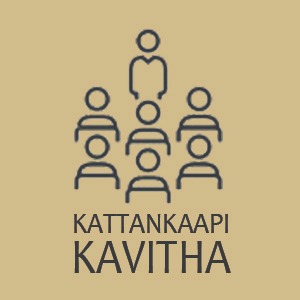Safeguarding Policy
To be reviewed annually or as required
The Directors, staff and volunteers at MAUK are fully committed to protecting children from harm.
This policy has been implemented at MAUK to safeguard the children and families in our care and is in line with:
- Working Together to Safeguard Children (DfE 2013)
- Keeping Children Safe in Education: Statutory guidance for schools and colleges (DfE September 2016)
- The Children Act 1989
- The Education Act 2002 s175 / s157
- Mental Health and Behaviour in Schools: Departmental Advice (DfE 2014).
Safeguarding is defined as:
- Protecting children from maltreatment
- Preventing impairment of children’s health or development
- Ensuring that children are growing up in circumstances consistent with the provision of safe and effective care
- Taking action to enable all children to have the best life chances
Our Music and Dance School values all children and we aim to provide them with the following:
- Creating an environment where children feel safe and secure, listened to and valued. Having adults in place for children to talk to and approach for help if they feel the need
- All children/young people having the right to speak freely and voice their values and beliefs
- For all stakeholders to understand their roles and responsibilities to contribute to the establishment of a safe, resilient and robust ethos in the school, built on mutual respect, and shared values
- Ensuring that training is offered and updated regularly so that staff are more able to recognize and be alert to signs and symptoms of abuse
- Developing staff’s awareness of the risks and vulnerabilities their pupils/students face
- Addressing concerns at the earliest possible stage
Reducing the potential risks pupils/students face of being exposed to violence, extremism, exploitation, or victimisation - Introducing appropriate work within the curriculum
- Ensuring that staff are aware of Child Protection Procedures and to know whom the named person is to contact in the event of an issue arising
- Developing and promoting effective working relationships with other agencies, especially the Police and Social Services
- Ensuring that all adults within MAUK who have access to children have had Enhanced Disclosures checked and verified by the Disclosure Barring Services (DBS) in addition to Disqualification by Association paperwork completed
- Ensuring that any parents/volunteers supporting our children have been checked in line with Local Authority Procedures
- Following the Local Authority Procedures for Child Protection
Who to contact in the event of an issue arising or concern: Sreejith Sreedharan (Secretary)
Nominated Safeguarding Officer: Sreejith Sreedharan (Secretary)
Other contacts in relation to concerns including over those named above: Sudheeran Vasudevan (Chairperson)
Indicators of concern
A concern about a child or a family may be bought to your attention through many channels. Some examples are:
- Through the child – something they disclose
- Something another person has said
- Your observations over a period of time (the child’s behaviour, the child’s appearance, the child’s health, the child’s emotional state)
- A visible physical sign on a child (an injury)
Observations need to be discussed with parents. If this does not produce a result, then advice must be sought from Social services. Every effort must be made to inform parents of all actions to be taken, unless this places the child at greater risk of abuse.
It takes a lot of courage for a child to tell an adult that they have been or are being hurt or abused. Children are very loyal to the people they love regardless of the pain they may be suffering. The threat of violence to themselves or others may
frighten children. Some children may never disclose abuse and continue with their lives taking abuse as the “norm”.
The child’s welfare and protection must be the first consideration for all staff. Any suspicion of child abuse must be given the highest priority.
At MAUK we believe it is important to LISTEN.
Procedures to follow if a child discloses something:
Listen carefully to the child. You must treat what they say seriously. Children rarely make false allegations. It is very important to distinguish between fact and impression.
You must reassure the child that they are right to tell someone about what has happened and that they are not responsible for what has happened.
The child must come forward with the information and you MUST NOT ask leading questions.
As soon as is possible you must record exactly what the child has told you. You should also note down the child’s behaviour and/or emotional state (in some cases these notes may be used in court proceedings). You are able to add your personal opinion based on your knowledge of the child but this must be clearly stated as ‘In my opinion’ and be written up separately from the child’s statement. You MUST sign and date your records.
It is essential that you do not make promises you cannot keep and that you don’t promise not to tell anyone.
You must report your findings to the safeguarding officer as soon as possible.
The designated person will then make further inquiries. Either by talking to other adults involved with the child, talking to the parents, and/or talking to the child.
The designated person may also contact the Safeguarding in Education team and if needed a referral to Children and Young People’s Services (Social Services) or the Police may be made.
Not all concerns raised will be referred to outside agencies, it is important to remember each situation is unique and there may be other events surrounding the one you are a part of.
Confidentiality within MAUK:
- We recognise that all matters relating to child protection are confidential.
- The safeguarding officer will disclose any information about a pupil to other members of staff on a need to know basis only. A written record will be made of what information has been shared with whom, and when.
- Child protection records will be stored securely in a central place separate from academic records. Individual files will be kept for each child – the school will not keep family files. Files will be kept for at least the period during which the child is attending the Music and Dance school, and beyond that in line with current data legislation and guidance. Access to these records by staff other than by the Designated Safeguarding Lead will be restricted, and a written record will be kept of who has had access to them and when.
- Parents will be aware of information held on their children and kept up to date regarding any concerns or developments by the appropriate members of staff. General communications with parents will be in line with any home school policies and give due regard to which adults have parental responsibility. We do not disclose to a parent any information held on a child if this would put the child at risk of significant harm.
- All staff are aware that they have a professional responsibility to share information with other agencies in order to safeguard children e.g. the child’s school.
- All staff must be aware that they cannot promise a child to keep secrets.
If a child is placed on a Child Protection Plan (old child protection register) or on a Child in Need plan if needed, staff involved with the child will be made aware of the circumstances. Any changes to the child’s normal behaviour at Music and Dance school or absences will need to be reported to their school and/or social services.
Once a child is placed on a care plan further investigations by other agencies may need to take place with or without parental consent, e.g., police inquiries.
MAUK will take guidance from both Children’s Social Care and the Police with regards to children having access to ‘alleged perpetrators.’
MAUK will work closely and take direction from Children’s Social care at all times and follow their recommendations with all children and families.
Our child protection records should be forwarded to the pupil’s school. If a pupil/student moves from our Music and Dance school, child protection records will be forwarded on to the Designated Safeguarding Lead at the new school, with due regard to their confidential nature and in line with current government guidance on the transfer of such records. Direct contact between the two schools may be necessary, especially on transfer from primary to secondary schools.
We will record where and to whom the records have been passed and the date.
If sending by post, pupil records will be sent by “Special/Recorded Delivery”. For audit purposes a note of all pupil records transferred or received should be kept in either paper or electronic format. This will include the child’s name, date of birth, where and to whom the records have been sent and the date sent and/or received.
When a Designated Safeguarding Lead resigns their post or no longer has child protection responsibility, there should be a full face-to-face handover/exchange of information with the new post holder.
In exceptional circumstances when a face-to-face handover is not possible, the Secretary will ensure that the new post holder is fully conversant with all procedures and case files.
Staff Code of Conduct
All staff (paid and voluntary) are expected to adhere to a code of conduct in respect of their contact with pupils and their families. Children will be treated with respect and dignity and no punishment, detention, restraint, sanctions or rewards are allowed outside of those detailed in the school’s Behaviour Management Policy.
Whilst it would be unrealistic and undesirable to preclude all physical contact between adults and children, staff are expected to exercise caution and avoid placing themselves in a position where their actions might be open to criticism or misinterpretation. Where incidents occur which might otherwise be misconstrued, or in the exceptional circumstances where it becomes necessary to physically restrain a pupil for their own protection or others’ safety, this will be appropriately recorded and reported to the Secretary and parents. Any physical restraint used will comply with DfE guidance “Use of reasonable force in Schools”.
Except in cases of emergency, first aid will only be administered by qualified First Aiders. If it is necessary for the child to remove clothing for first aid treatment, there will, wherever possible, be another adult present. If a child needs help with toileting, nappy changing or washing after soiling themselves, another adult should be present or within earshot. All first aid treatment and non-routine changing or personal care will be recorded and shared with parents/carers at the earliest opportunity. Children requiring regular medication or therapies for long-term medical conditions will be made the subject of a Medical Plan that has been agreed with the parents and health authority.
For their own safety and protection, staff should exercise caution in situations where they are alone with pupils. Other than in formal teaching situations; for example during musical instrument tuition, the door to the room in which the 1:1 coaching, counselling or meeting is taking place should be left open. Where this is not practicable because of the need for confidentiality, another member of staff will be asked to maintain a presence nearby and a record will be kept of the circumstances of the meeting. All rooms that are used for the teaching or counselling of pupils will have clear and unobstructed glass panels in the doors.
School staff should also be alert to the possible risks that might arise from social contact with pupils outside of the school. Home visits to pupils or private tuition of pupils should only take place with the knowledge and approval of the Director in charge of the MAUK Music and Dance School (Anil Edavana). Visits/telephone calls by pupils to the homes of staff members should only occur in exceptional circumstances and with the prior knowledge and approval of the Director in charge of the Music and Dance School. Any unplanned contact of this nature or suspected infatuations or “crushes” will be reported to the Secretary.
Staff will only use the approved MAUK email or other MAUK approved communication systems with pupils or parents/carers and only communicate with them on appropriate school business and will not disclose their personal telephone numbers and email addresses to pupils or parents/carers. Staff will not use personal cameras (digital or otherwise) or camera phones for taking and transferring images of pupils or staff without permission and will not store images at home.
Staff should be aware of the MAUK’s whistle-blowing procedures and share immediately any disclosure or concern that relates to a member of staff with the Secretary or the Chairperson if the Secretary is not available and nothing should be said to the colleague involved. It should be shared with the Director Board if it relates to the Chairperson.
Allegations towards staff:
If there is a concern about a member of staff this should be brought to the attention of the Secretary. If the allegation concerns the Secretary, then this needs to be bought to the attention of the Chairperson. MAUK will seek the support of the LADO (Local Authority Designated Officer) in cases where it is considered that a child may have been put at risk or harmed by a member of staff whether employed or a volunteer who is working in the school. The LADO for Newham can be contacted on 0203 373 3392.
The Role of The Director Board
The Nominated Director for child protection at MAUK is Sreejith Sreedharan (General Secretary)
The Director Board are the accountable body for ensuring the safety of MAUK. The Director Board will ensure that:
- The Music and Dance school has a safeguarding policy in accordance with the procedures of Newham Safeguarding Children Board
- MAUK operates, “safer recruitment” procedures and ensures that appropriate checks are carried out on all new staff and relevant volunteers
- At least one senior member of the MAUK leadership team acts as a Designated Safeguarding Lead
- The Designated Safeguarding Lead attends appropriate refresher training every two years
- The Secretary/Chair Person and all other staff who work with children undertake training at three yearly intervals
- Temporary staff and volunteers are made aware of the MAUK’s arrangements for child protection and their responsibilities
- MAUK remedies any deficiencies or weaknesses brought to its attention without delay
- MAUK has procedures for dealing with allegations of abuse against staff/volunteers
This procedure should be used in any case in which it is alleged that a member of the Director Board, staff, visiting professional or volunteer has:
- Behaved in a way that has harmed a child or may have harmed a child
- Possibly committed a criminal offence against or related to a child
- Behaved in a way that indicates s/he is unsuitable to work with children
All staff working within our organisation must report any potential safeguarding concerns about an individual’s behaviour towards children and young people immediately. Allegations or concerns about colleagues and visitors must be reported direct to the Secretary unless the concern relates to the Secretary. If the concern relates to the Secretary or is considered to have reached the threshold above, it must be reported immediately to the Local Authority Designated Officer in children’s social care, who will liaise with the Director Board and they will decide on any action required.
Safer Recruitment and Selection
MAUK pays full regard to ‘Keeping Children Safe in Education’ (DfE 2016). Safer recruitment practice includes scrutinising applicants, verifying identity and academic or vocational qualifications, obtaining professional and character references, checking previous employment history and ensuring that a candidate has the health and physical capacity for the job. It also includes undertaking interviews and undertaking appropriate checks through the Disclosure and Barring Service (DBS). All recruitment materials will include reference to the school’s commitment to safeguarding and promoting the wellbeing of pupils.
Staff support
We recognise the stressful and traumatic nature of child protection work. We will support staff by providing an opportunity to talk through their anxieties with the Designated Safeguarding Lead and to seek further support as appropriate.
Our Role in the Prevention of Abuse
We will provide opportunities for pupils/students to develop skills, concepts, attitudes and knowledge that promote their safety and well-being.
Parental support
We will provide workshops/sessions to raise parental awareness about relevant issues, for example emotional well-being, British values, e-safety and bullying.
Photographs and videos
MAUK will seek permission and inform parents if photos or videos of their children will be used in any publications or go on show anywhere other than school premises. Parents may record their child’s performances for home viewing but are
actively encouraged not to share or upload images or recordings of children other than their own onto other platforms.
We also monitor children’s behaviour very closely through our Behaviour Policy, which supports us in identifying possible safeguarding issues.
Inappropriate use of technologies
We recognise that young people are at potential risk from the inappropriate use of new technologies. This includes the risk of inappropriate contact through the internet, sexting and exposure to harmful or age inappropriate material. We urge parents to actively teach children how to stay safe online as well as the benefits and risks of social media. We encourage parents to ensure that our pupils become confident users of new technology and are able to identify and report risk but alongside this ensure that pupils are kept safe when online.
Other areas of work
Our safeguarding policy cannot be separated from the general ethos of the MAUK, which should ensure that all adults and children are treated with respect and dignity, encouraged to treat each other with respect, feel safe, have a voice, and are listened to.
Safeguarding Pupils who are vulnerable to extremism
Since 2010, when the Government published the Prevent Strategy, there has been an awareness of the specific need to safeguard children, young people and families from violent extremism. There have been several occasions both locally and nationally in which extremist groups have attempted to radicalise vulnerable children and young people to hold extreme views including views justifying political, religious, sexist or racist violence, or to steer them into a rigid and narrow ideology that is intolerant of diversity and leaves them vulnerable to future radicalisation.
MAUK value freedom of speech and the expression of beliefs / ideology as fundamental rights underpinning our society’s values. Both pupils/students and teachers have the right to speak freely and voice their opinions. However, freedom comes with responsibility and free speech that is designed to manipulate the vulnerable or that leads to violence and harm of others goes against the moral principles in which freedom of speech is valued. Free speech is not an unqualified privilege; it is subject to laws and policies governing equality, human rights, community safety and community cohesion.
The current threat from terrorism in the United Kingdom may include the exploitation of vulnerable people, to involve them in terrorism or in activity in support of terrorism. The normalisation of extreme views may also make children and young people vulnerable to future manipulation and exploitation. MAUK are clear that this exploitation and radicalisation should be viewed as a safeguarding concern.
Extremism is defined by the Government in the Prevent Strategy as:
Vocal or active opposition to fundamental British values, including democracy, the rule of law, individual liberty and mutual respect and tolerance of different faiths and beliefs. We also include in our definition of extremism calls for the death of members of our armed forces, whether in this country or overseas.
Extremism is defined by the Crown Prosecution Service as:
The demonstration of unacceptable behaviour by using any means or medium to express views which:
- Encourage, justify or glorify terrorist violence in furtherance of particular beliefs;
- Seek to provoke others to terrorist acts;
- Encourage other serious criminal activity or seek to provoke others to serious criminal acts; or
- Foster hatred which might lead to inter-community violence in the UK.
MAUK seek to protect children and young people against the messages of all violent extremism including:
Risk reduction
The Advisory Board, Chair Person and the Designated Safeguarding Lead will assess the level of risk within MAUK and put actions in place to reduce that risk. Risk assessment may include consideration of the use of MAUK premises by external agencies, integration of pupils by gender and SEN and other issues specific to the MAUK’s profile, community and philosophy.
Response
MAUK will identify a Prevent Single Point of Contact (SPOC) who will be the lead within the organisation for safeguarding in relation to protecting individuals from radicalisation and involvement in terrorism: this will normally be the Designated Safeguarding Lead. The SPOC for MAUK is Sreejith Sreedharan (Secretary)
When any member of staff has concerns that a pupil may be at risk of radicalisation or involvement in terrorism, they should speak with the SPOC and to the Designated Safeguarding Lead if this is not the same person.
Numerous factors can contribute to and influence the range of behaviours that are defined as violent extremism, but most young people do not become involved in extremist action. For this reason the appropriate interventions in any particular case may not have any specific connection to the threat of radicalisation, for example they may address mental health, relationship or drug/alcohol issues. (See appendix A)
Safeguarding Pupils who are vulnerable to exploitation, forced marriage, genital mutilation or trafficking
Our safeguarding policy above is reflected through MAUK’s values, ethos and behaviour policies and provides the basic platform to ensure children and young people are given the support to respect themselves and others, stand up for themselves and protect each other.
MAUK keeps itself up to date on the latest advice and guidance provided to assist in addressing specific vulnerabilities and forms of exploitation.
Our staff are supported to recognise warning signs and symptoms in relation to specific issues. MAUK works with and engages our families and communities to talk about such issues. Our staff are supported to talk to families about sensitive concerns in relation to their children and to find ways to address them together wherever possible.
Our Designated Safeguarding Leads know where to seek and get advice as necessary. MAUK brings in experts and uses specialist material to support the work we do.
Use of External Agencies and Speakers (see also visiting speakers policy)
At MAUK we encourage the use of external agencies or speakers to enrich the experiences of our music and dance pupils. However, we will positively vet those external agencies, individuals and speakers whom we engage to ensure that they are suitable and properly supervised.
The official on site is in charge of coordinating and vetting the booking of all visiting speakers and staff members should seek permission giving a clear explanation as to the relevance and purpose of any visit and intended date and time.
We ensure that we do not unwittingly use agencies that contradict each other with their messages or that are inconsistent with, or are in complete opposition to, the school’s values and ethos.
MAUK will assess the suitability and effectiveness of input from external agencies or individuals to ensure that:
- Any messages communicated to pupils support fundamental British Values and MAUK values
- Any messages communicated to pupils are consistent with the ethos of MAUK and do not marginalise any communities, groups or individuals
- Any messages communicated to pupils do not seek to glorify criminal activity or violent extremism or seek to radicalise pupils through extreme or narrow views of faith, religion or culture or other ideologies
MAUK will undertake the following processes to safeguard our pupils against inappropriate or unsuitable speaking visitors: - A formal procedure for inviting speakers, which involves approval by the Chair Person and a clear understanding of why the speaker has been chosen
- A list of appropriate checks on the suitability of the person, which may include internet searches and/or contacting other schools/organisations where the person has spoken previously
- Although not always possible, it is useful to invite speakers from an established company, charity or other group whose aims are well-documented
- An understanding that the speaker will be expected to talk with staff about the content of the presentation before the event. Speakers and staff must allow time for this discussion, whether it is on the day or beforehand to ensure that they understand they must abide by MAUK’s equality commitments; that there must be no statements which might cause offence to others, or otherwise undermine tolerance of other faiths or beliefs; and there must be no extremist material.
- An understanding that such talks and presentations will not be used to raise funds, without the prior written permission of the Chair Person.
- Visiting speakers must bring suitable identification. Although viewing DBS certificates may be appropriate, most visiting speakers will not be in ‘regulated activity’ and so will not necessarily have a DBS certificate to present.
- Visitors must be supervised at all times and not be left alone with pupils, unless they have confirmed DBS checks
- Visiting speakers should understand that their presentation may be brought to an early end if the content proves unsuitable
- All information about the visiting speaker and the booking process should be recorded in the MAUK diary
If any concerns over the conduct of the speaker or the content of the presentation are raised by the supervising adult, these should be brought to the Chair Person’s attention immediately and a review made of whether future visits are suitable. MAUK reserves the right to refuse access to any visitor who it is deemed may present a safeguarding risk to pupils in line with this policy
APPENDIX A
INDICATORS OF VULNERABILITY TO RADICALISATION
- Radicalisation refers to the process by which a person comes to support terrorism and forms of extremism leading to terrorism.
- Extremism is defined by the Government in the Prevent Strategy as:
Vocal or active opposition to fundamental British values, including democracy, the rule of law, individual liberty and mutual respect and tolerance of different faiths and beliefs. We also include in our definition of extremism calls for the death of members of our armed forces, whether in this country or overseas. - Extremism is defined by the Crown Prosecution Service as:
The demonstration of unacceptable behaviour by using any means or medium to express views which:- Encourage, justify or glorify terrorist violence in furtherance of particular beliefs;
- Seek to provoke others to terrorist acts;
- Encourage other serious criminal activity or seek to provoke others to serious criminal acts; or
- Foster hatred which might lead to inter-community violence in the UK.
- There is no such thing as a “typical extremist”: those who become involved in extremist actions come from a range of backgrounds and experiences, and most individuals, even those who hold radical views, do not become involved in violent extremist activity.
- Pupils may become susceptible to radicalisation through a range of social, personal and environmental factors – it is known that violent extremists exploit vulnerabilities in individuals to drive a wedge between them and their families and communities. It is vital that school staff are able to recognise those vulnerabilities.
- Indicators of vulnerability include:
- Identity Crisis – the student / pupil is distanced from their cultural / religious heritage and experiences discomfort about their place in society
- Personal Crisis – the student / pupil may be experiencing family tensions, a sense of isolation, and low self-esteem. They may have dissociated from their existing friendship group and become involved with a new and different group of friends;, and they may be searching for answers to questions about identity, faith and belonging.
- Personal Circumstances – migration, local community tensions, and events affecting the student / pupil’s country or region of origin may contribute to a sense of grievance that is triggered by personal experience of racism or discrimination or aspects of Government policy
- Unmet Aspirations – the student / pupil may have perceptions of injustice, a feeling of failure, or rejection of civic life
- Experiences of Criminality – these may include involvement with criminal groups, imprisonment, and poor resettlement / reintegration
- Special Educational Need – students / pupils may experience difficulties with social interaction, empathy with others, understanding the consequences of their actions and awareness of the motivations of others
- However, this list is not exhaustive, nor does it mean that all young people experiencing the above are at risk of radicalisation for the purposes of violent extremism.
- More critical risk factors could include:
- Being in contact with extremist recruiters
- Accessing violent extremist websites, especially those with a social networking element
- Possessing or accessing violent extremist literature
- Using extremist narratives and a global ideology to explain personal disadvantage;
- Justifying the use of violence to solve societal issues
- Joining or seeking to join extremist organisations
- Significant changes to appearance and / or behaviour
- Experiencing a high level of social isolation resulting in issues of identity crisis and / or personal crisis



















